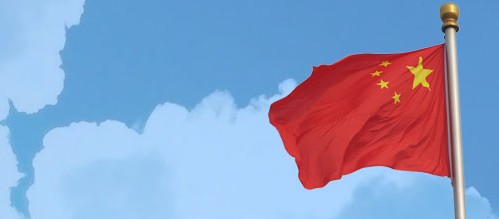A US House Intelligence Committee report warned the country’s operators that Chinese infrastructure vendor ZTE and its domestic rival Huawei, pose a threat to the country’s national security. In the wake of the report, David Dai Shu, ZTE’s director of global public affairs, spoke to Telecoms.com to give his comopany's side of the story.
October 9, 2012

A US House Intelligence Committee report warned the country’s operators that Chinese infrastructure vendor ZTE and its domestic rival Huawei, pose a threat to the country’s national security. In the wake of the report, David Dai Shu, ZTE’s director of global public affairs, spoke to Telecoms.com to give his comopany’s side of the story.
The investigation was originally requested by Huawei, in February 2011, after the firm denied that there was any justification for US security concerns.
As a result of the investigation, ZTE proposed a model whereby the vendor identifies an independent third party to review the firm’s equipment and software ahead of any network project, in order to ensure that it poses no threat to US national security.
But Dai Shu argued that the committee responsible for the report had not given enough consideration to this solution, known by the vendor as a Trusted Delivery Model.
“From the report we found that the committee noticed ZTE’s efforts regarding the solution. But it doesn’t seem that it paid serious attention to how we proposed to solve this problem. It’s a pity really — we believe that solving the problem is more important than making allegations,” he said.
Dai Shu added that ZTE’s partners in the US were also disappointed that there was no scope in the report for an attempt to resolve the issues.
“In my personal point of view, maybe the committee is not interested in the solution, but there are other committees in the US that are. We’re communicating with the necessary committees in the US trying to figure out how to solve the problem,” he said.
Ultimately, the report is only expected to have a minimal impact on ZTE’s business in the US. The firm generated around $400m in revenue in the country last year, but only around $30m was from its infrastructure business, according to Dai Shu.
“That means that more than 90 per cent of ZTE’s business is based on handsets and devices in the US. This report has very limited influence on ZTE’s business in the US,” he said.
Dai Shu also argued that this finding should apply to any company with manufacturing facilities China. The world’s top five communications vendors manufacture most of their equipment in China.
“So if you strip out the location of the vendor, the equipment is similar. We don’t think it is fair that only ZTE or Chinese companies are being investigated for national security issues. We still believe that figuring out the problem is the priority for the whole industry; the whole supply chain, and not just those based in certain countries and certain companies.”
Dai Shu argued that allegations that ZTE could pose a national security threat have been overplayed, because the company has not been involved in any national network construction. The firm was forbidden from bidding to build Sprint’s network in 2010, and has predominantly participated only in projects with SMEs in the US.
“We have a very good track record for the technical and commercial part of the bidding process. It was unfair for ZTE that it was not for technical or commercial reasons but for political reasons that we were not given the opportunity to bid for the network construction,” said Dai Shu. “After the Sprint failure, it was very clear that there is no way for ZTE to penetrate into the US top tier carriers such as AT&T or Sprint.”
Nonetheless, the vendor is adamant that it can work with the US government to resolve any security issues, with the final version of the report expected to be submitted in mid-November.
“ZTE still has the opportunity to communicate with the committee before the official issue of the report to try to revise some of the content.
“I do believe US government needs more visits to China and we need to talk more openly. So this could actually help us to understand each other in the future.”
About the Author(s)
You May Also Like








.png?width=300&auto=webp&quality=80&disable=upscale)


_1.jpg?width=300&auto=webp&quality=80&disable=upscale)


.png?width=800&auto=webp&quality=80&disable=upscale)